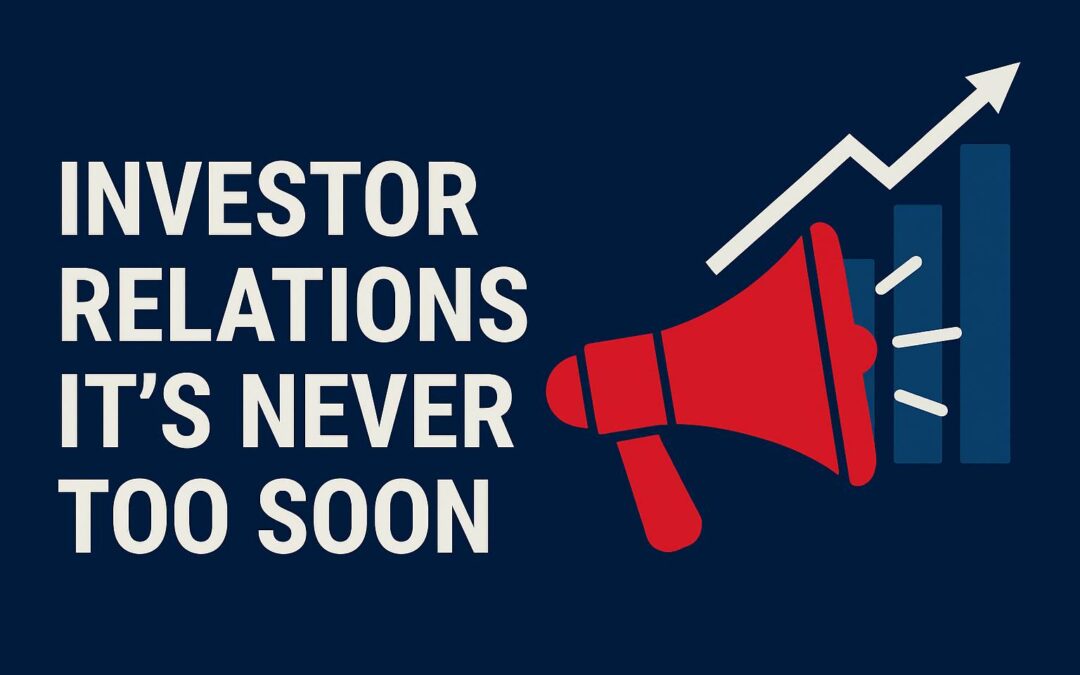Why Founders Should Start Thinking About IR Before They Go Public
Foundations Matter Early
Most Canadian founders think of investor relations (IR) as something you build after going public. The news releases. The quarterly calls. The shareholder Q&A. But by the time you’re doing that, you’ve already missed the most strategic window.
In reality, effective IR begins long before a listing—often while your company is still private, scaling, and raising early capital. Why? Because IR isn’t just about public reporting. It’s about building the habits, expectations, and investor-facing posture that make public markets easier to navigate later.
IR Is More Than Disclosure
Investor relations isn’t just about telling your story. It’s about managing expectations—and trust—across very different types of investors:
- Friends and family in your first raise
- Seed funds and angels in a convertible note
- Strategic partners backing your growth
- Retail investors after a go-public transaction
Each stage introduces new disclosure norms, legal considerations, and communication risks. Founders who treat IR as an afterthought often struggle to adjust once they face public scrutiny. That’s when unforced errors happen—overpromising in interviews, underdelivering on filings, or drifting from the core narrative that first attracted investors.
The Mindset Shift
Building a professional IR mindset early isn’t about over-polishing your pitch. It’s about cultivating clarity, discipline, and respect for the investor’s perspective. Ask yourself:
- Can we explain our business model without jargon?
- Do our milestones match our claims?
- Are we using metrics investors actually care about?
- Are we communicating consistently across decks, updates, and filings?
Founders who do this before going public tend to attract stronger, longer-term investors. They’re also better equipped to handle volatility, board pressure, and market feedback—because they’ve practiced the IR muscle from day one.
Small Habits, Big Impact
You don’t need a full IR department. But you do need a system:
- Log investor questions and note recurring themes
- Build an internal FAQ based on past pitch feedback
- Track KPIs and update your narrative quarterly—even before you file
- Start building relationships with IR advisors before the listing
IR isn’t a switch you flip. It’s a discipline you develop. And in Canada’s small-cap markets, the companies that show maturity—long before they’re required to—tend to stand out.
Closing Thought
Going public doesn’t make you investor-ready. It reveals whether you already were. Start treating IR as a leadership function, not a compliance burden. The earlier you start, the stronger your foundation—and your reputation—will be.
For insight on preparing your investor narrative and early IR structure, contact us.

